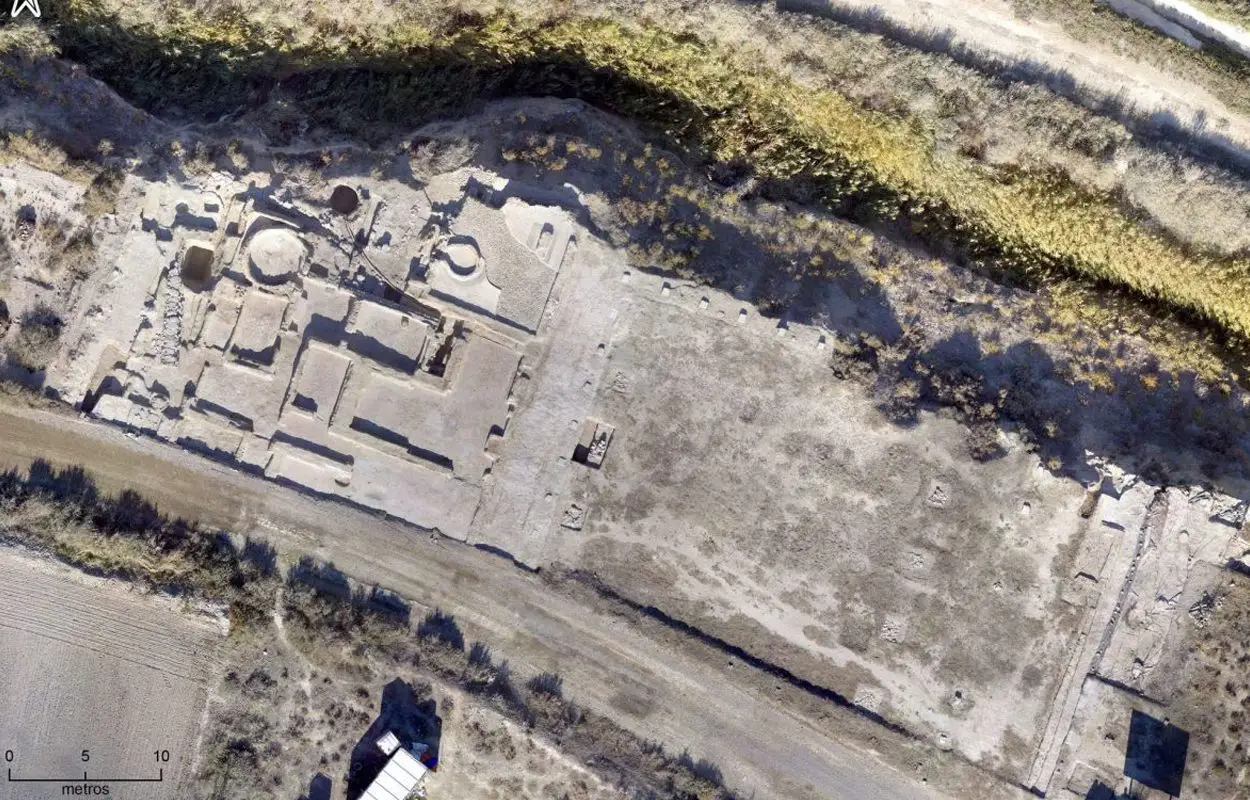Archaeologists from the University of Zaragoza have uncovered a Roman forum at the La Cabañeta archaeological site in the Zaragoza municipality of El Burgo de Ebro, Spain.
The forum was the civic centre of a Roman city (the name of which is unknown), however, the researchers suggest that it may have been Castra Aelia that the Roman historian, Titus Livy, cites when recounting the 77 BC campaign of General Quintus Sertorius through Hispanic lands.
In a brief fragment of book XCI of the History of Rome, Titus Livy describes Castra Aelia as being an oppidum where Sertorius installed his winter quarters after the successful siege of the Celtiberian city of Contrebia during the Republic Era.
Castra Aelia was founded around 200 BC and was destroyed during the Sertorian War, a military campaign undertaken against Sertorius, loyal to Gaius Marius, by the generals Metellus Pius and Pompey the Great.
Speaking to exibart, Borja Díaz, said: “It was a city laid out according to a clear orthogonal urban planning. Furthermore, a significant number of Latin inscriptions made on ceramics and stone were found. which demonstrates that the people who lived there wrote and spoke in Latin.”
Situated in a strategic position, the city at La Cabañeta may have been an entry and redistribution point for goods arriving across the river, however, around the year 70 BC (corresponding with the period of the Sertorian War), the city was razed to the ground, evidenced by a context layer of burning and destruction.
According to the researchers, very few Roman cities from the Republic Era offer a clear image of Roman urban planning, however, the forum discovery at La Cabañeta provides valuable insights into the formative phase of the urban model that would later become the standard for Roman cities.
Header Image Credit : University of Zaragoza





